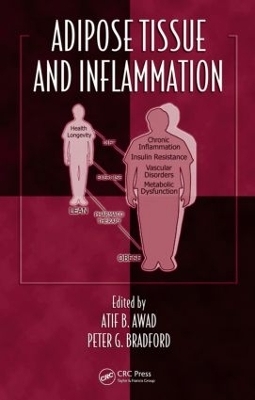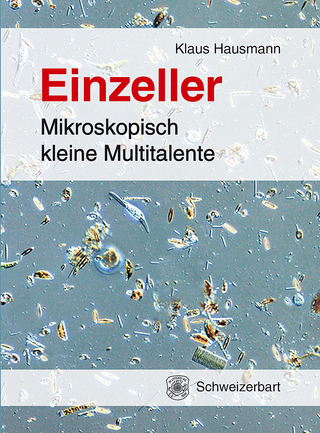
Adipose Tissue and Inflammation
Crc Press Inc (Verlag)
978-1-4200-9130-4 (ISBN)
The American Obesity Association identifies obesity’s link to numerous medical conditions, including hypertension, type 2 diabetes, cardiovascular disease, several cancers, and a host of inflammatory disorders. Evidence indicates that inflammation has more than a corollary relation with obesity; that in fact, obesity itself manifests a low-grade, metabolically associated inflammation involving many of the same mediators associated with classic inflammation. Concurrent with our understanding, we have to recognize that more than a storage site for fat, adipose tissue itself is an essential endocrine organ that produces and secretes a host of hormones in response to varying physiologic and pathologic states.
Bringing together the research and findings of leading experts from across the world, Adipose Tissue and Inflammation focuses on the contribution of adipose tissue to local and systemic inflammation. Demonstrating the endocrine like nature of adipose tissue, this book—
Looks at the direct relation between adipokines and inflammation
Examines the role of adipose secreted hormones as mediators of inflammation
Details the inflammatory actions of adiponectin, leptin, and resistin
Discusses insulin and dietary fatty acids as modulators of inflammation
This book belongs to the groundbreaking CRC Press Series on Oxidative Stress and Disease. The series now includes more than two-dozen volumes that address the multiple ways that oxidative stress initiates and accelerates disease mechanisms. Most importantly, this book, like the series, offers invaluable information regarding nutritional and life style choices, and interventions that can be employed to prevent, control, and even ameliorate disease processes attributed to oxidative stress. While much of the information put forth on these pages is sobering, the authors also look at the anti-inflammatory properties of plant sterols and phytoestrogens and the role that antioxidants and polyphenols play in moderating adipose inflammation. Further research looks at the role of exercise and weight loss in reducing inflammation; and discusses pharmaceutical approaches to adipose tissue related-inflammation.
Atif B. Awad is an associate professor of nutrition at the State University of New York at Buffalo. He earned his PhD in nutrition from Rutgers University, New Brunswick, New Jersey, and completed postdoctoral training in biochemistry at the University of Iowa. He has supervised more than 80 MS and PhD students. He has published more than 80 papers and presented more than 70 abstracts at national and international scientific meetings. His research focus is in the area of dietary lipids and their effects on disease prevention, particularly the effects of phytochemicals on combating chronic diseases. Peter G. Bradford is an associate professor of pharmacology and toxicology at the State University of New York at Buffalo. Dr. Bradford earned a BS summa cum laude in biology from the State University of New York at Albany and a PhD in biochemistry from the University of Rochester. He is author or coauthor of more than 50 research journal articles and book chapters and has served as an invited speaker for more than 50 university lectures, international scientific presentations, and various television and radio interviews. His work on hormone therapeutics has been cited by the New York Times, Women’s World Magazine, and various pharmacology weblogs. He is a member of the ADA Council on Scientific Affairs and the ADA National Board Test Construction Committee. He is a long-standing member of the Endocrine Society.
The Adipose Organ. Adipose Tissue as Endocrine Organ. Epidemiology of Obesity. Inflammatory and Anti-Inflammatory Mediators Secreted by Adipose Tissue. Adipokines and Inflammation. Insulin as Modulator of Adipose Inflammation. Growth Hormone as Modulator of Adipose Inflammation. Glucocorticoids as Modulators of Adipose Inflammation. Prostaglandins as Mediators of Adipose Inflammation. Inflammatory Actions of Adiponectin, Leptin, and Resistin. Dietary Fatty Acids as Modulators of Adipose Inflammation. Anti-Inflammatory Properties of Plant Sterols and Phytoestrogens: Experimental and Clinical Evidence. Antioxidants, Polyphenols, and Adipose Inflammation. Role of Exercise and Weight Loss in Reducing Inflammation. Adipose Tissue and Anti-Inflammatory Pharmacotherapy. Conclusions and Future Directions.
| Erscheint lt. Verlag | 15.10.2009 |
|---|---|
| Reihe/Serie | Oxidative Stress and Disease |
| Zusatzinfo | 18 Tables, black and white; 26 Illustrations, black and white |
| Verlagsort | Bosa Roca |
| Sprache | englisch |
| Maße | 156 x 234 mm |
| Gewicht | 566 g |
| Themenwelt | Naturwissenschaften ► Biologie ► Zellbiologie |
| ISBN-10 | 1-4200-9130-1 / 1420091301 |
| ISBN-13 | 978-1-4200-9130-4 / 9781420091304 |
| Zustand | Neuware |
| Haben Sie eine Frage zum Produkt? |
aus dem Bereich


